How to be a Blockchain programming Superhero
Blockchain Developer
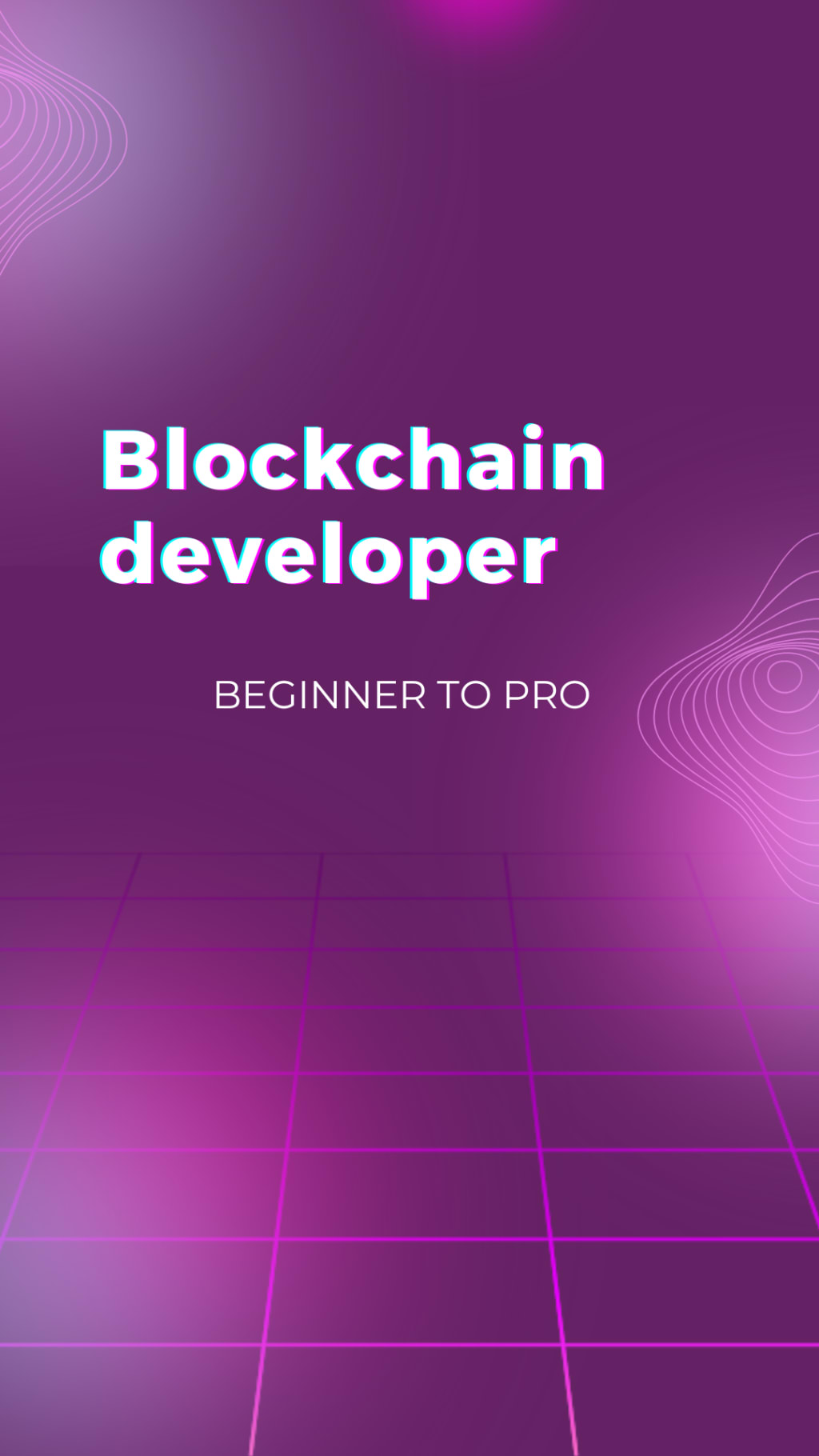
The Way of the hottest developer career of the future:
Blockchain programming
Now’s your perfect time to get into it.
Here’s why:
• For the foreseeable future, there will be a huge demand for blockchain developers.
Blockchain engineers used to be only required by those looking to launch their own cryptocurrency, which is a relatively small population.
As more people become aware of the advantages, usage of blockchain technology is skyrocketing. Fortune 500 businesses and governments are beginning to use blockchain. As it becomes more widely used, demand for skilled blockchain programmers is skyrocketing.
• You can get rich programming for blockchain.
The goal of Simple Programmer is to help you succeed and earn the most money possible as a developer.
The typical annual pay is $109,000, and the typical freelance hourly rate is between $81 and $100.
This job path is a fantastic choice if you want to become a wealthy and successful programmer.
• Your competition is still small
Only 0.6% of the 20 million software engineers in the world are proficient in blockchain coding, and even those are not all at a level where they can provide high-quality code on demand.
Learn the blockchain Programming: This 3-step Tutorial will help you to reach there.
Learning blockchain programming can be intimidating for a novice.
How do you even begin?
Be at ease.
You can explore the subjects one by one with the help of this tutorial, which will direct you to them.
Take it slow and steady! Start by studying everything from scratch.
You'll overcome your stress. You'll begin to comprehend things more thoroughly. Even if you're just starting out now, you'll be well on your way to learning blockchain programming.
1.Blockchain programming basics.
You will master the fundamentals of blockchain programming, including
Learn about the blockchain system.
How bitcoin technology is changing the software development sector.
what it is that a blockchain engineer actually does.
What are the applications?
2.Coding for the Blockchain
What to do?
which are the finest languages?
What hardware and applications you require?
3.How to win at your career as a blockchain programmer?
You should develop your skills.
your plan for developers.
What you can earn?
So, are you prepared to master blockchain development?
Then let's get started!
Getting to know the technology?
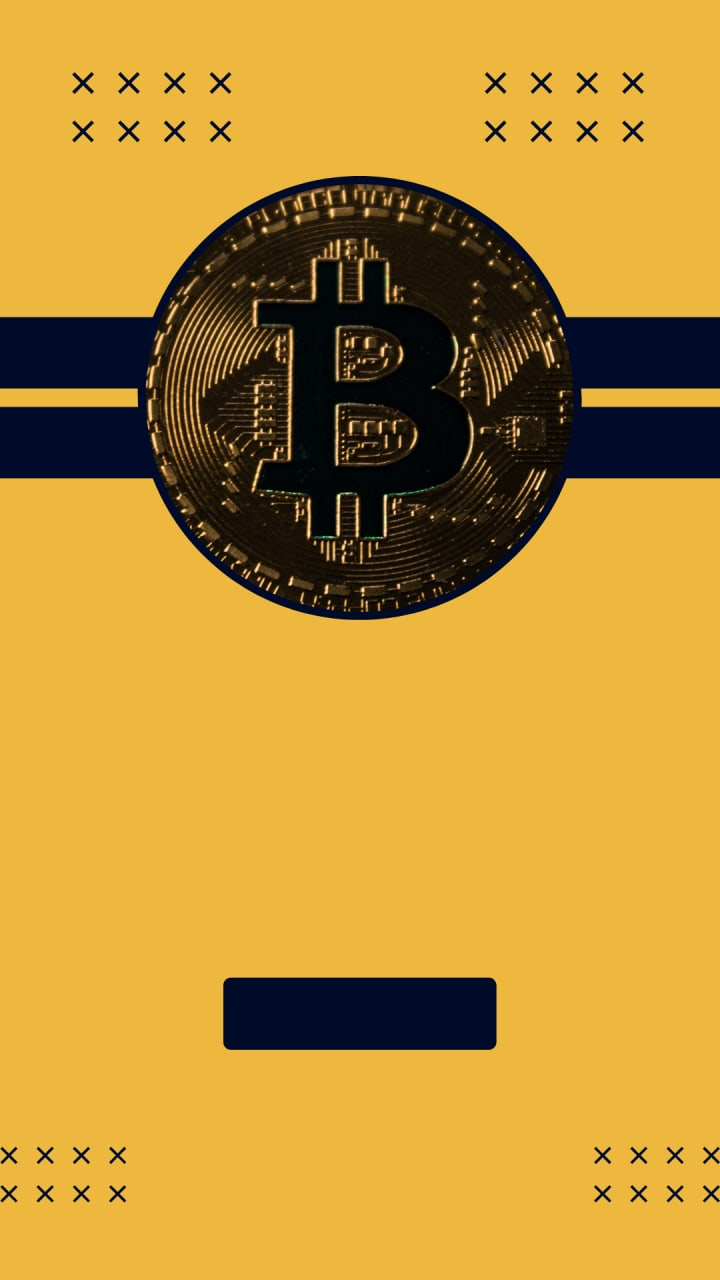
A blockchain is a collection of immutable recorded data that is handled by a group of computers rather than by a single entity. It is a highly dependable technology for transparent data transfer and a decentralized, unbreakable electronic ledger used to document financial activities.
It adheres to the fundamental rules of a chain, where each piece is firmly fastened.
For instance, when a blockchain-based application is created, the user has the ability to examine and add records to the software database.
They are unable to alter or remove any data entries, which increases the process's integrity.
What are Smart Contracts?
A smart contract is a software protocol that executes automatically as long as certain preset conditions are met, allowing it to enforce contracts like the execution of credible transactions without the involvement of third parties.
How Blockchain is transforming the Software Development Industry.
The use of cloud-based goods has significantly changed within the software development sector. Blockchain is built on the separation of digital assets, which is made possible by cloud technology.
Blockchain technology is advancing quickly and tackling a variety of problems in the software sector. Its goals are to guarantee effective testing activities, improve teamwork, and expand the use of smart contracts in software development.
Why Use Blockchain for Software Development?
Blockchain software is very secure, as I previously mentioned. In peer-to-peer networks, it is used for data traversal and storage in open ledgers.
Blockchain-focused apps are becoming more popular as mobile applications with better protection and quality become more prevalent.
The following are the main characteristics of blockchain-oriented software (BOS) systems:
Data Replication: Replicating data is stored in various systems to ensure data security. Each node possesses a clone of the blockchain code.
Requirement Checks: Before processing, BOS validates the transaction criteria.
Transaction Recording: In a sequential log of connected blocks that is produced by a consensus algorithm, BOS keeps track of events.
Public-key Crytography: The foundation of transactions is public-key encryption.
Blockchain software is greatly advantageous in ensuring the security of data because of these characteristics.
How it's used in the Software Industry
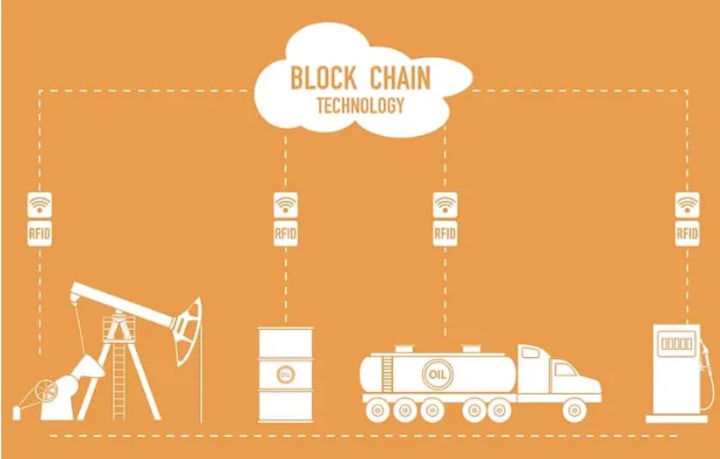
Security, which is essential in the finance sector, is ensured by blockchain technology, which works as a propeller in software quality assurance.
For maximum security, a lot of well-known businesses are looking into ways to incorporate blockchain technology into their databases.
For instance, General Electric intends to use datasets created on the blockchain in their Aviation Division plans. They are also developing software that would provide top-notch security, transparency, and integrity for managing sales, tracking, record-keeping, and inventory information.
In conventional development techniques, transparency is the enemy of integrity because it makes data more vulnerable to manipulation. But with blockchain technology, they coexist and are provided as a benefit to the businesses.
What is Blockchain Programming?
Writing smart contracts for blockchain technology entails creating applications that run precisely as intended with no chance of fraud.
Consequently, blockchain software is either:
designing the peer-to-peer blockchain system and its procedures
creating the software apps that make use of that technology.
What is a Blockchain Developer,Exactly?
Working on the blockchain itself would classify you as a core worker if you were a blockchain developer.
Alternately, you create blockchain software and design smart contracts and decentralized applications. (dApps).
Being a blockchain core is more difficult than being a program developer.
The best programming languages for Blockchain?
Here is a glimpse at a few blockchain programming languages, their functions, and some additional reading materials. As the subject can become quite extensive and full of code, each part will only serve as an introduction.
1.C++
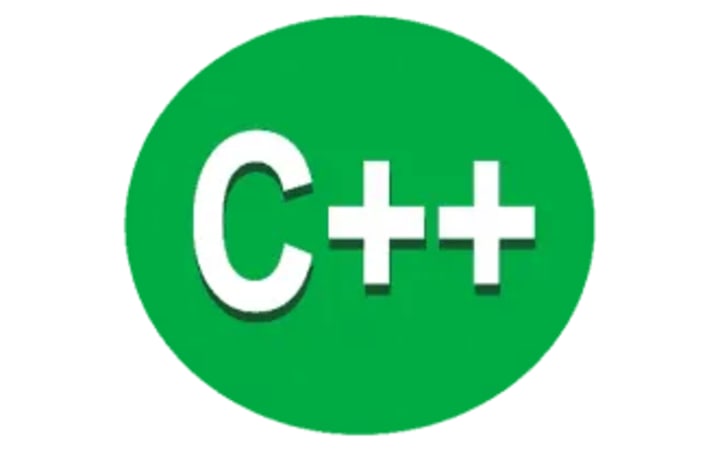
Let's begin with C++, the most traditional of them all. Bjarne Stroustrup's work in 1985 helped the language come to life. When C++ emerged as an upgraded version that is object-oriented (where data and functions are packaged up into a package called "Objects"), the primitive C language already existed but was process-oriented. An object-oriented product can be reused on different platforms without the need for new coding, which is ideal for total beginners.
Here are a few more reasons why C++ is preferred for blockchain coding:
Better memory control: In the blockchain ecosystem, there are numerous requests. For instance, the platform must be a safe haven while also processing deals and interacting with all nodes quickly. You must exercise greater control over memory and CPU usage for all of these things to occur. You can get that from C++.
Superb Multithreading:
A thread is a collection of instructions meant to run concurrently. There are jobs that parallelize during blockchain development and there are tasks that do not. The majority of languages can perform one of these duties, but not both. You'll be happy to know that C++ lets you manage both at once
Compile time Polymorphism:
C++ is an object-oriented programming (OOP) language, as was previously stated. Additionally, OOP has the characteristic of polymorphism, which refers to the use of a single feature in multiple methods. You can now execute some duties independently by coding your blockchain in C++, which will improve the performance of the complete digital ledger.
Code isolation:
Namespace features in this antiquated but ground-breaking coding language can be transported from one location to another. However, collisions can occasionally happen and deform the complete system. However, code isolation and separation may become a little simpler as a result of the language's segmentation capability, which combines various APIs in different ways.
2. Python
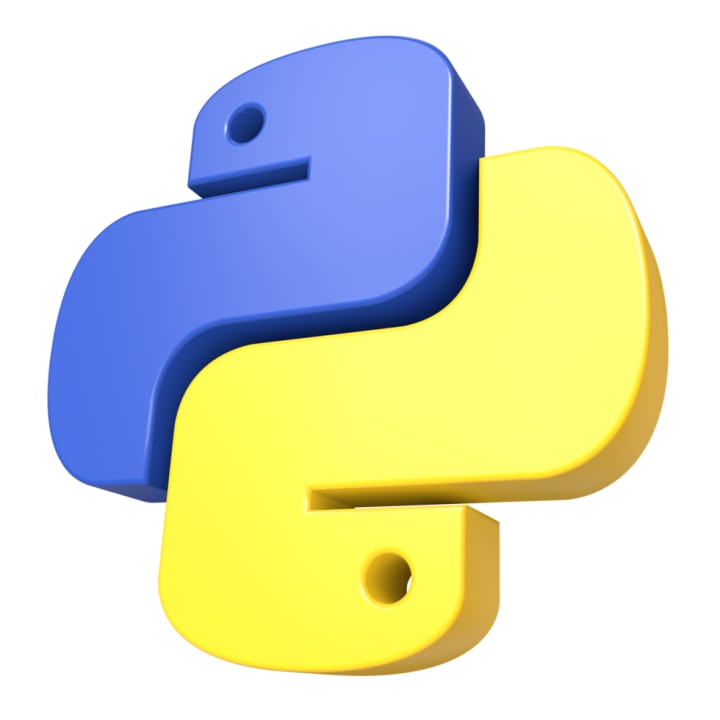
Another straightforward programming language for novice programmers who are wary of C++'s complexity is Python. A Dutch coder by the name of Guido van Rossum created it in 1991. The framework of the language is founded on the three principles of simplicity, readability, and minimalism.
This language's simplicity has led to a huge community of both emerging and seasoned writers supporting it. Python employs straightforward and less intimidating white spaces to represent code blocks in place of the curly brackets and keywords used in C++.
It's simple to mistake simplicity for waste. However, Python is capable of creating dependable, stable, and complex digital ledgers. The best aspect is this: This language can be both compiled and uncompiled and is written. For instance, you can simply fix the bug and reload your application when you discover one in your code.
For other languages, such as C++, you must halt the application, correct the source-code error, and then recompile it before resuming operation. Python can help you avoid doing quite a bit of labor. Additionally, the language provides programmers with a sizable, cost-free reference library for writing blockchain code.
3.Javascript
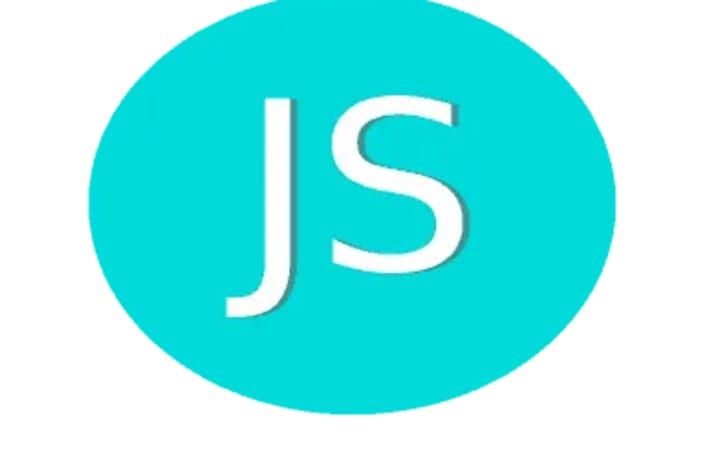
One of the most popular languages on the Internet is JavaScript. This is the language to use if you want a dynamic website with gorgeous user interfaces. It is supported by all of the popular platforms, including Firefox and Google Chrome.
As we already stated, a blockchain is essentially a system of nodes arranged sequentially. However, this record is unique because once data has been entered, it cannot be changed, making it irreversible. When creating a straightforward but impenetrable blockchain that is impossible for hackers and other dishonest people to change, JavaScript is one of the go-to languages. However, there is one drawback: the language doesn't have the SHA256 hash algorithm.
4.SOlidity
This is the most intricate high-level language, utilizing both the classes and scripts of C++ and JavaScript. The language provides advice and guidance on how to use its code in addition to being beginner-friendly. Although the language is not particularly difficult, those who have a basic understanding of contemporary programming languages are at an edge.
Ethereum, the second-largest cryptocurrency after bitcoin, is already using Solidity, despite the fact that it is still attempting to find its footing in the programming world. It makes logical that they would be the first to use the language since they created it. However, the Ethereum network is one of the fastest and easiest to use for the creation of smart contracts.
5.GO
GOLang, also known as GO, is a comparatively recent programming language that was created at Google in 2007 and made available to the general public in 2012. In an attempt to combine the syntax and user-friendliness of other popular languages like JavaScript with the dependable security features of more traditional languages like C and C++, this robust and multipurpose coding language was developed.
Maximum flexibility is possible with GO because it naturally runs in an operating system, particularly when working with multiple blockchain components at once. GO is a programming language that is used in many blockchain apps, including the SDK protocol for Ethereum.
9 Blockchain use cases you can work in as a developer
Every year, there’s more use cases for blockchain.
Applications are being developed for different industries:
1.Cybersecurity
2. Healthcare
3. Manufacturing
4.Legal and Government
5.Charity
6.Retail
7.Real estate
8.Tourism
9.Media
How to Code Blockchain --- Simplified in Easy Steps
You might not be aware of how your experience coding for bitcoin will go when you're just getting started.
Let me offer you the simplest blockchain coding example I can.
In a word, this is how it operates:
Code your dApp or smart contract inside of your IDE.
Use a nearby cryptocurrency to test it.
Run a server or connect to one
Examine it on a Testnet
Launch it.
What do you need for blockchain programming?
Software
A blockchain development environment that allows you to create, test, and operate your blockchain software. Examples include Hardhat, Truffle, and Remix, with Remix being the most user-friendly.
Node.JS front-end environment is used to create the dApps' user interface.
A service like NOWNodes that links you to a node, the blockchain core for Bitcoin, or the Ethereum client, for example, that is compiled on your computer to operate your own node, are all examples of APIs to explore blockchain data and transactions. Moreover, a block viewer is available
Hardware
identical to what we described in "What do you need for programming," the hardware requirements are identical.
Do keep in mind the extra work involved in maintaining your own node.
It's acceptable to operate a node on your personal computer at first. In the long run, you might consider buying a separate machine to use exclusively for the node. You'll have greater performance and security as well as less stress on your primary PC if you do this.
Your hardware's main bottleneck is the hard drive size. For instance, Ethereum uses a lot of hard disk space and necessitates a lot of back-and-forth contact.
What do you need for blockchain programming?
• CPU:2-4 Cores
• RAM:8-16GB Ram
• Hard disk:500-1000GB(preferably SSD)
• Bandwidth:10Mbit/s-25+Mbit/s
The Top Blockchain Developer Skills you'll need
1.Grasp basic cryptography concepts
For coders, cryptography can be frightening.
But as a blockchain engineer, fundamental cryptography principles will guide your work, so make sure you familiarize yourself with the fundamentals:
• Hashing functions
• Encryption
• Public & Private Keys
• Signing
2.Understand how blockchain & distributed ledgers work
Describe a blockchain. A distributed database is what?
You must be able to respond to these queries if you want to be an effective blockchain programmer.
Since it will be your responsibility to either directly design these items (as a core developer) or to create applications on top of them. (as a blockchain software developer).
You might begin by reading a book on blockchain for beginners to gain this knowledge
3. Know popular Blockchain Platforms
Learn about the most well-known blockchain systems and how they operate, such as:
• Ethereum
• Hyperledger
• Steller
4. Know databases, Data Structures & Networking Concepts
You must be familiar with databases, data structures, and networking to work as a blockchain engineer
• Flat & relational databases.
• Stacks, Linked Lists, Queues
• LAN/WAN, Switches & Routers





Comments
There are no comments for this story
Be the first to respond and start the conversation.